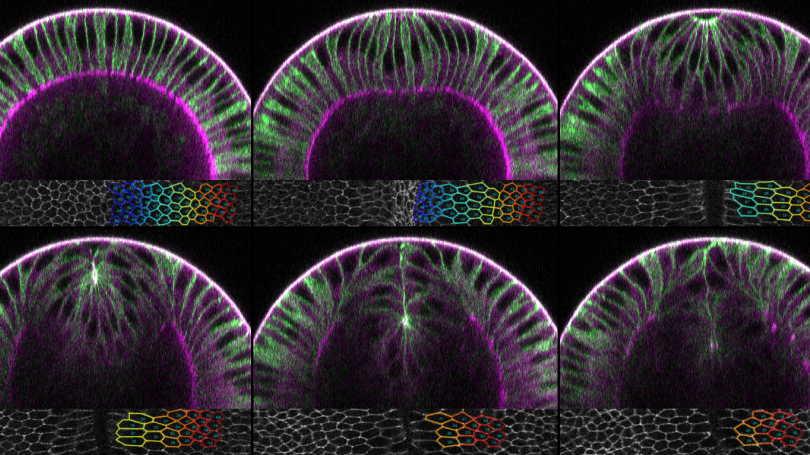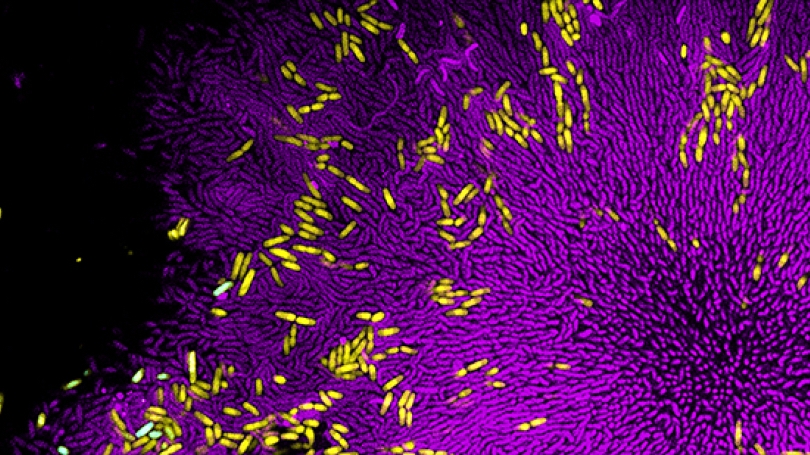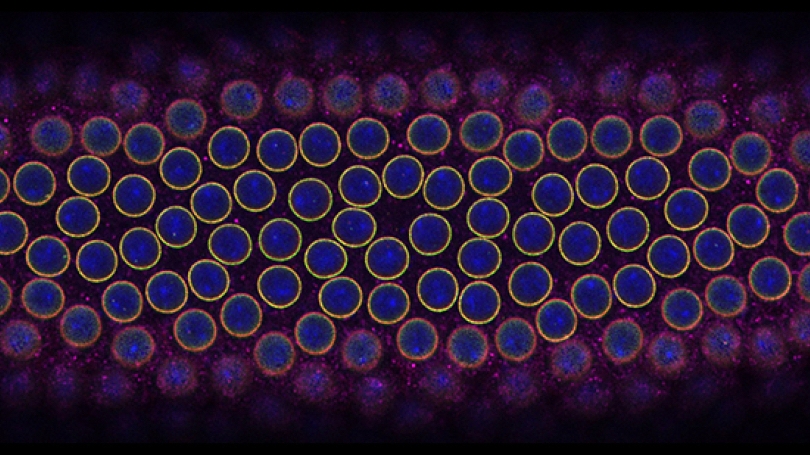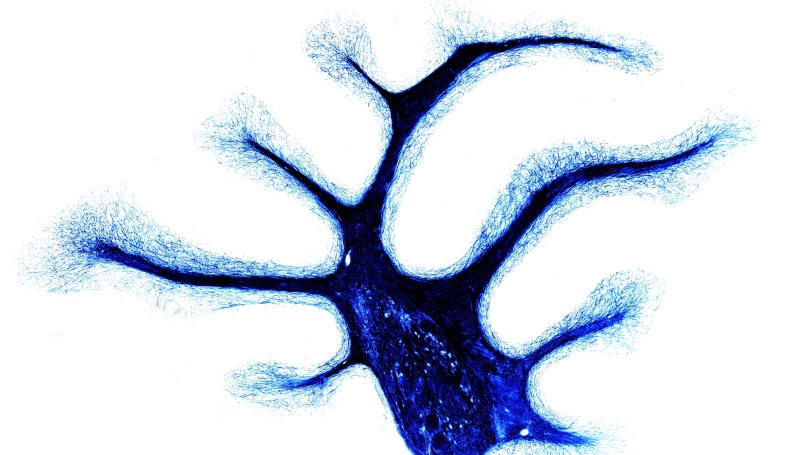The Department of Biological Sciences at Dartmouth is a vibrant community of world-class life sciences researchers who are focused on foundational questions essential for human health and wellbeing. Our research groups are investigating fundamental topics that span the full spectrum of biological interactions from understanding the relationships between microbial communities in biofilms to the regenerative capacity of myelinating oligodendrocytes within the brain.
In addition to the MCB program, the department draws from graduate programs in neuroscience (IND), ecology and evolution (EEES), and quantitative biomedical science (QBS). This interdisciplinary environment provides unique opportunities for students in their educational experience as well as their work and social communities. Research topics within our labs include cell and developmental biology, neurobiology, plant biology, systems biology, quantitative biology, ecosystems ecology and evolution. We use cutting-edge techniques such as quantitative and super resolution microscopy, bioinformatics, genetics, genomics, biochemistry, molecular biology, and mathematical modeling. We study a wide range of model systems including bacteria, mice, cell culture, mosses, plants, yeasts, nematodes and fruit flies. Our work strives to answer basic biological questions and improve human wellbeing through the generation of novel disease treatments (including cancers and neurodegenerative diseases), tools for sustainable global food production, and environmental practices for controlling infectious diseases.
The faculty in the biology department are dedicated to providing our graduate students with a supportive, creative, rigorous and collaborative training environment. Researchers within our department collaborate across departmental, geographic, and disciplinary boundaries to create truly interdisciplinary research programs. Biology students participate in the weekly seminar series, topic-based journal clubs, and student-run interest groups. The Department of Biological Sciences is housed in the Class of 1978 Life Sciences Center (LSC), a modern open lab research and teaching building that opened in 2011. The LSC is home to the Life Sciences Light Microscopy Facility which contains seven state-of-the-art light microscopes, a greenhouse that includes both a living botanical museum and research space, and several common spaces that facilitate spontaneous interactions, collaborations, and cross-pollination of ideas. Students also take full advantage of the bioMT Institute for Molecular Targeting (an NIH Center of Biomedical Research Excellence) and numerous other campus resources. In addition to on-campus resources, our students regularly collaborate with labs at other institutions and attend national scientific meetings.
Labs in biology are well supported by the NIH, NSF, private foundations, and institutional funds. Students have successfully competed for prestigious external and internal fellowships and awards for their work. Additionally, the biology department provides research and professional development funds to graduate students. Our students have gone on to successful careers as faculty, research scientists and leaders in biotechnology and pharmaceutical companies, public policy, science communication and patent law as well many other science careers.
Learn more about this department.



